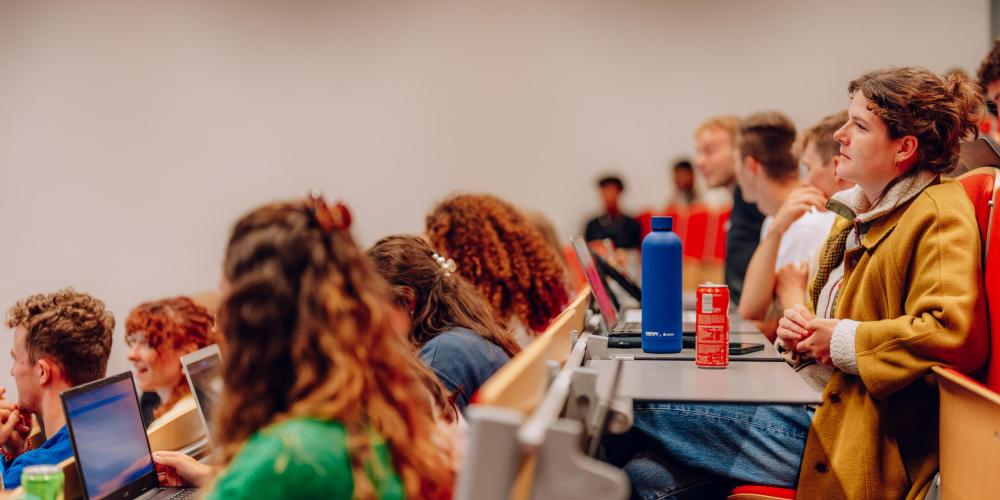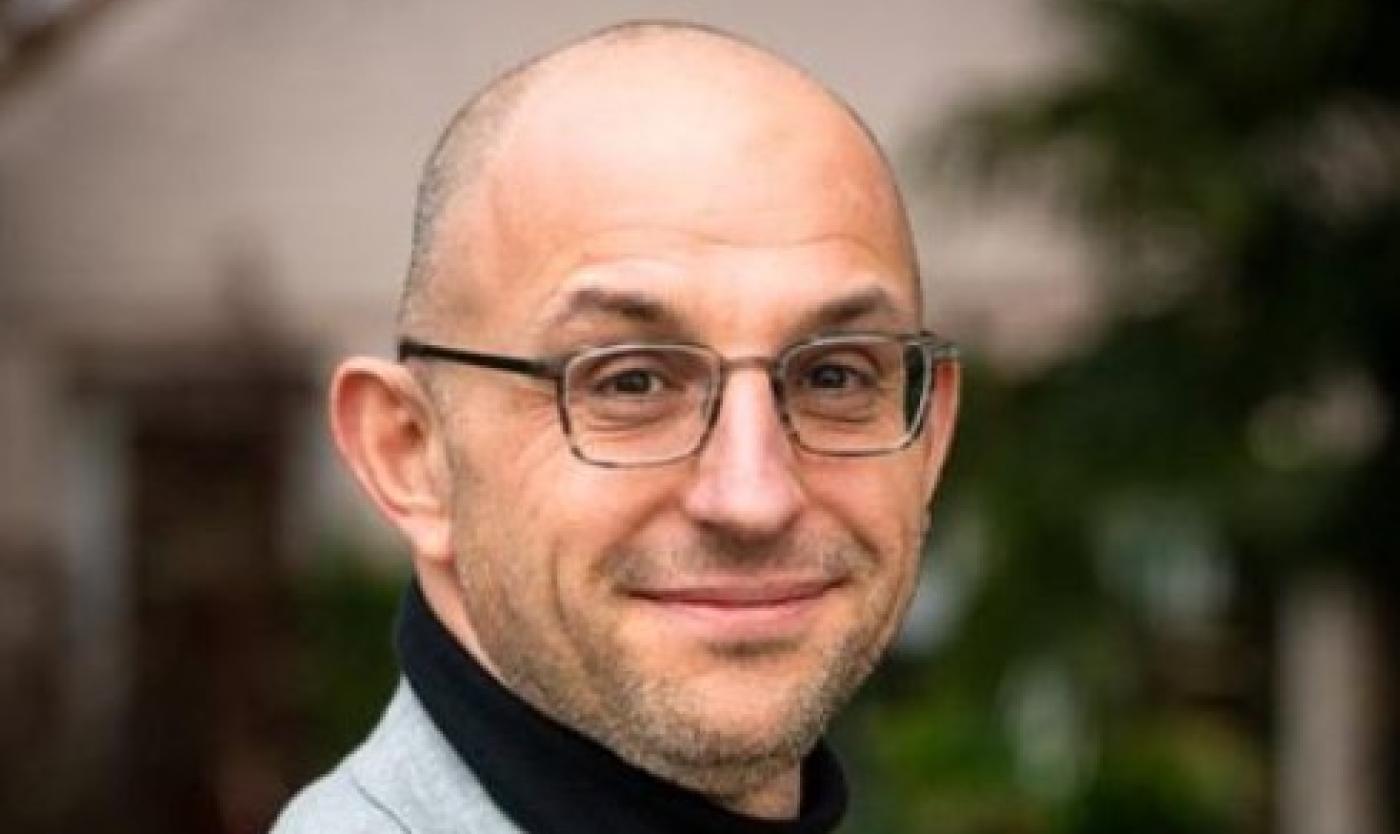
On 1 November 2025, Knack published an opinion piece by Wim Vandenbussche, Professor of Dutch Linguistics and Commissioner for Multilingualism at the VUB. “Multilingualism will not lead to the erasure of Dutch,” writes Vandenbussche. “In the penthouse of the ivory tower, they still enjoy their aperitif in Dutch.”
When I read last week that hardly any PhD theses in Flanders are still written in Dutch, the doom scenarios multiplied like the finest fungus threads. English, it was said, serves only the interests of university elites; Dutch guarantees a one-way ticket to a failed research career; and the Anglicisation of the academic ivory tower seems as inevitable as the betrayal of the hard-won language struggle for Dutch-language higher education.

Wim Vandenbussche
As a former Flemish activist (in a contrary way), professor of Dutch, and promoter of international Dutch studies, I understand those sentiments and fears. There are many genuine pedagogical, social, and political reasons to cherish and protect the Dutch-language character of higher education in Flanders. But panic helps no one. So it’s worth putting a few things in perspective—especially since there are other, more pressing language concerns.
In Flanders, Flemish? Quite right. Dutch remains the undisputed language of instruction in the vast majority of university programmes. Ninety-one per cent of all bachelor’s degrees and at least 65 per cent of master’s degrees are taught in Dutch. In other words: no “Holland-style” situations here. Dutch is clearly not disappearing as an academic language in our lecture halls, and the vast majority of students still have to work in Dutch.
That said, this is far from self-evident: between a quarter and a third of incoming students fail to reach the basic level on the Dutch language entry test—and that trend has only worsened since Covid. Universities are aware of this and actively address it. We invest heavily in language testing and remediation, offer free extra Dutch language classes, build individual language learning paths within programmes, and develop a full range of language support—aimed at improving success rates, shortening study duration, and ensuring smoother progression through studies.
“It’s truly sad that the Flemish government cut precisely those funds meant for language support”
This daily effort to strengthen Dutch among our young talent is an underexposed side of the living language commitment of Flemish universities and colleges. It’s therefore truly regrettable that the Flemish government cut precisely those funds meant for language support—at the VUB alone, that meant €5 million in “Brussels funds” brutally removed. The recently announced language plans of the Flemish government soften that blow somewhat, but offer limited relief for the linguistic challenges of the superdiverse cities in Flanders and Brussels. Cynics might call it a drop in the bucket.
“Does society always benefit most from refusing new English-language bachelor’s and master’s degrees?”
The Flemish government seems to squint elsewhere when considering Dutch as a language of science: the quiet dismantling of both the KANTL and KVAB is hard to read as support for research in one’s own language. Sacrificing two Dutch-language academies of science because they’re “no longer a priority” does more damage than symbolic harm. Internationally, you appear exposed not just because you’ve discarded your top scholars for a handful of silver coins, but also because you signal internally that your commitment to science in Dutch wavers with the political weather.
Flanders can be quite zealous when it comes to Dutch in academia. The firm stance of the Higher Education Commission on applications for foreign-language master’s programmes is well known, and the generally rejected appeals against those decisions are a thorn in the side of university rectors. The only question is whether society is best served by the stubborn refusal of new English-language bachelor’s and master’s programmes.
International young talent
No one calls for abolishing all quotas in a serious debate, but an honest conversation is necessary when there are clear social and economic needs that could partly be met through programmes aimed at an international audience. When business federations point out thousands of unfilled jobs in the Brussels region, it seems only logical to explore the potential of a few targeted foreign-language programmes.
If, thanks to Brussels’ international character, you have a talent pool of young people from all over the world, you might want to think twice before watching all that capacity flow away to foreign institutions—often offering English-language courses from a “virtual” campus across the street. And if higher education budgets are cut by €83 million in one blunt round, then modestly expanding quotas for foreign-language programmes can be an honourable compromise to generate limited extra income.
“We need international talent more than ever—but universities that attract it are financially penalised”
For those thinking “It’s all about the money”: there’s no threat to the Flemish educational character if 12% of bachelor’s degrees are in English instead of 9%. We simply need that international talent more than ever. Yet universities that recruit it are financially punished: the Flemish government also cut subsidies for students from outside the European Economic Area—go figure. At the VUB, we know from experience that many of these non-EEA students eagerly take Dutch language and culture courses—not only to return home as excellent ambassadors for our language and region, but also to integrate and build a life here.
Lingua Franca
Do these considerations in education also ease concerns about the Anglicisation of research? The fact is that scientists have always embraced a lingua franca to share ideas. French and German once played that role; today, largely due to political and economic factors beyond Flanders’ control, English has taken over much of the world. The question is not whether you can keep English out, but whether you want to safeguard a place for Dutch in research.
Reality, again, is sobering. A solid international portfolio of publications and conference talks is now a basic requirement for any academic appointment, at home or abroad—and that happens in English. Leading international journals are overwhelmingly in English, especially those indexed in the Web of Science, which generate funding per publication. Since PhD theses increasingly take the form of collections of published articles, this reinforces Anglicisation.
“We must ensure that our young academics master both Dutch and English at a high level”
Of course, nothing prevents researchers from sharing their findings in Dutch as well. Flemish universities even receive funding for such publications, via the Flemish Academic Bibliographic Database, which guarantees their quality. Yet these count for only half in the funding model—making them far less attractive. Supervisors are therefore hopeful that the next government agreement will increase the financial value of Dutch-language scientific publications, or strategically boost the number of Dutch journals included in the Web of Science. The truth is that many of these journals survive only thanks to generous support from the University Foundation.
Those who fiercely oppose the global Anglicisation of research culture can do so—and may even earn some sympathy for their quixotic stand. But it seems far more effective to ensure that our young academics master both Dutch and English at a high level. Universities are already heavily investing in this, offering English learning paths tailored to specific programmes. A forward-looking government would see this as a wise investment in knowledge, prosperity, and innovation—and allocate dedicated resources accordingly.
“This multilingualism will not lead to the erasure of Dutch”
A sociolinguistic truism holds that “the weak are always more likely to be bilingual than the strong.” Unlike 100 or 200 years ago, today’s multilingualism will not erase Dutch. It is a respected language, anchored in nearly every domain of society—including academia. In the penthouse of the ivory tower, they still raise their glasses in Dutch.
Bio Wim Vandenbussche
Wim Vandenbussche is Full Professor of Dutch and General Linguistics at the Vrije Universiteit Brussel (VUB). He is a member of the Royal Academy for Dutch Language and Literature and of the Brussels Council for Multilingualism. Vandenbussche currently serves as President of the International Association for Dutch Studies (IVN).